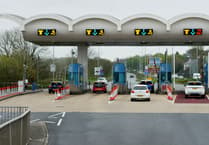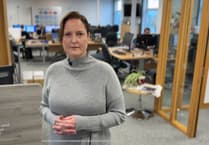By Ollie Heptinstall, local democracy reporter
Devon County Council taxpayers face a planned 2.99% rise in their bills from April, with the extra cash raised going towards supporting vulnerable adults and children.
It would mean the yearly council tax bill for an average Band D property will rise by £45.18 to £1,556.46. This excludes planned increases to other parts of the tax that fund district councils, police and the fire service.
The council’s ruling Conservative cabinet approved the budget plans on Friday [February 11], which will see total spending increase from £580-million to more than £629-million next year — a rise of 8.4%. It will now be presented to full council next week to be ratified.
The money will mostly go towards spending increases of over 10% on children’s and adult services, with both departments under pressure and projected to overspend on their budgets this year.
However, director of finance Angie Sinclair warned the total spending increase and extra money from government — which assumes the council tax rise — is “not sufficient” to cover increased costs due to service pressures and inflation, which add up to £87-million.
As a result, while overall spending by the council is planning to rise by almost £50-million, it is having to fund almost half of that from its reserves and make cuts and savings in some areas totalling £30-million.
They include reductions of over £7-million in care and support for older people and those with physical and learning disabilities. The budget book states: “Ultimately, the successful delivery of the budget will require a reduction to the care and support which people are currently receiving.”
Presenting the figures, Cllr Phil Twiss (Conservative, Feniton), cabinet member for finance, said: “There is no getting away from the fact that this budget is one of the most challenging that Devon County Council has ever faced.”
He described how the authority was “taking a large chunk of cash” from reserves to help fund services next year, adding: “We put those reserves aside for a rainy day, and I think we can all agree it’s more like a monsoon season right now, rather than just a rainy day.”
But Cllr Twiss warned: “These reserves are finite, and can only be spent once. However, I’m certain that it is the right thing to do and that we must use some of this money to support the young, the elderly and the most vulnerable within our communities.”
Although the county tax increase is the lowest since 2015, it will place further pressure on household finances at a time they are being squeezed by the soaring price of energy, coupled with rising inflation and an increase in national insurance contributions from April.
Following discussions, planned cuts to highways maintenance of £1.8-million have been reduced after it was agreed to put in an extra million, while the council has scrapped a planned £329,000 reduction in community grant and crowdfunding schemes.
Opposition leader Cllr Alan Connett (Lib Dem, Exminster & Haldon) acknowledged it was one of the most challenging budgets the council has had to set, but questioned whether the “significant savings targets” would be achieved.
He added: “When you read through the booklet, what it does identify in quite a bit of narrative is the reduction of services that are going to be available to some of the most vulnerable people in Devon.
“This isn’t a budget which should give anyone any heart. It’s one that should cause us all great concern, because a lot of the grief that will be experienced by this will go unseen and unheard as people find that they either don’t meet new elevated criteria for a service or suddenly find they are asked to pay for things, but suddenly find that they just can’t get it because we don’t have the staff and we don’t have the resource.”
Leader of the Labour group, Cllr Rob Hannaford (Exwick & St Thomas) said it was “regrettable” the council was having to put up tax, criticising the government for not intervening and “adequately [compensating] local government so we didn’t have to pass on this £45.18 rise.”
“We are of course in an impossible position, and I feel we have to do it because otherwise frontline services will be harmed and vital things that we need to do won’t be done.”
He added: “We know that the council tax is a regressive tax. It hurts the poor and those on low and fixed incomes the most, so surely this should have been at least one year where he had a proper intervention, so we didn’t have to be put in this position.”
Members will discuss and vote on the budget at a meeting of the full council this Thursday, February 17.





Comments
This article has no comments yet. Be the first to leave a comment.